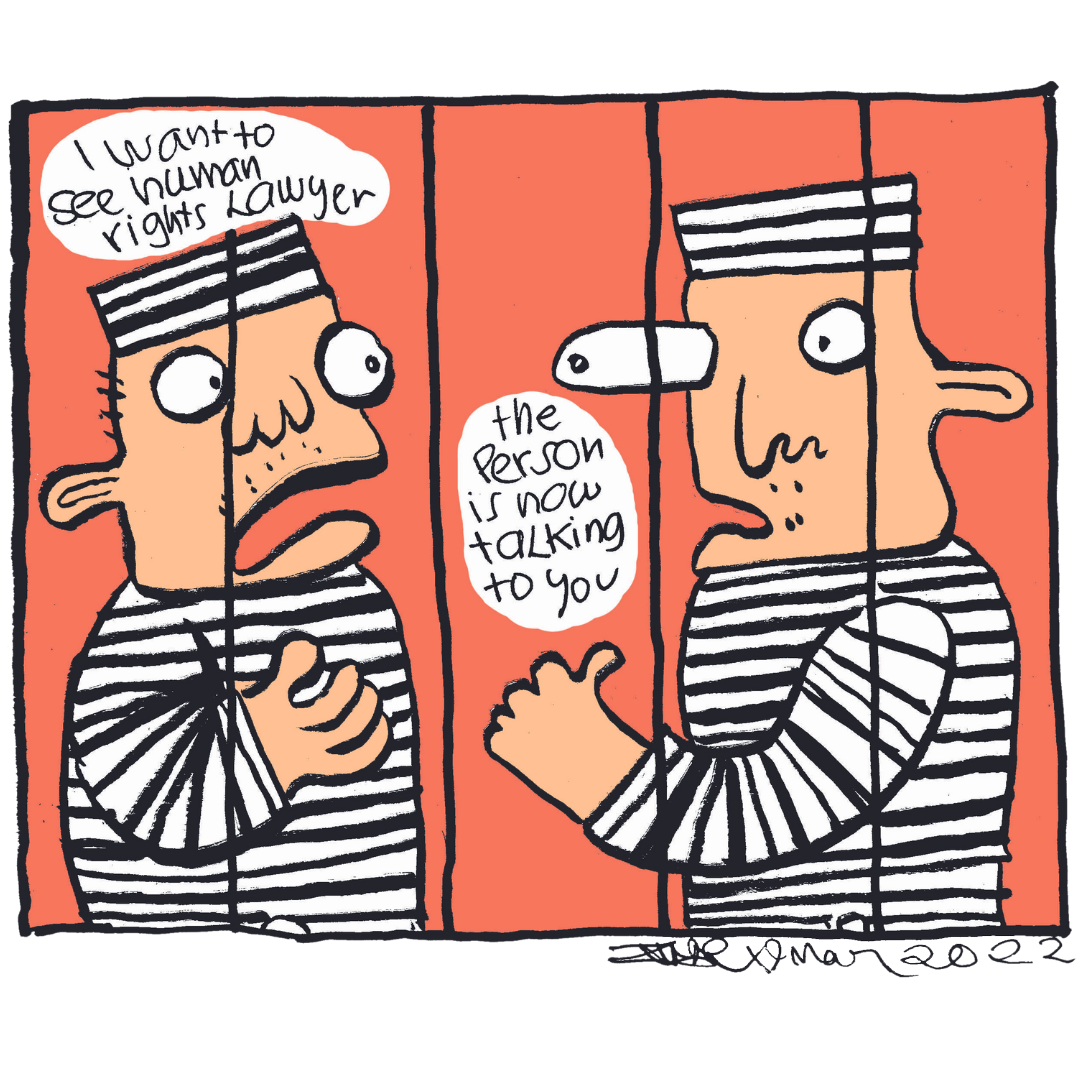
MYANMAR
The Situation of Lawyers
The lawyer in the interview wishes to remain anonymous due to the potential threats to the lawyer’s physical integrity.
You wanted initially to become a corporate lawyer. How did you then decide to get involved in promotion of human rights?
Due to the current political crisis in Myanmar, I stopped all my work on providing legal advice and services on business issues. I was not a typical human rights lawyer; however, since 2013, I have been consulting farmers on their land rights. I think I was successful in my field and later, I opened my own law firm. Unfortunately, in February 2021, I had to stop all my firm’s activities, such as company licensing, tax clearance, contracting, consultation with corporate companies, etc. My grandparents and father were farmers. When I was approximately at grade five and 6, our land was confiscated by the government to build Mandalay’s international airport. No one received compensation for his or her land and crops that were lost. Some villages were destroyed for building the abovementioned airport, and it was a sad scenario to witness people moving poorly at their own costs. In addition, the villagers were forced to take part in building the roads in front of their houses with no wages provided. Women workers were sexually harassed by the government forces, as they were forced to participate in the construction of the corresponding roads. I was 10 years old and had to take part in this roadbuilding. As I faced unfair treatment over my rights previously, I wanted to take part in protection processes, when human rights violations occur.

It is impressive that you gave up on your dream activities and continue as a human rights lawyer. In your new capacity, what specific activities do you carry out and what challenges you face?
Now, I am representing people who were arrested unlawfully due to their political beliefs. I am working to obtain their rights as prisoners. At Insein jail in Yangon, inmates do not have rights to live with dignity. Since the time they are arrested, they are not allowed to meet their families. I submit applications to secure their rights according to our laws, but my applications are almost always rejected. As a lawyer, I do everything I can to help those being arrested and subject to unlawful practices. I can only meet them in the court. On behalf of their families, I show them love and care, comfort them, and listen to their needs and fulfill them if I can.
You said that you are representing people before the court, who are arrested unlawfully. How is the situation of your imprisoned clients?
I have over 40 clients and all of their rights are being violated in prison. My clients have to live in a small crowded space with over 100 people, which can hold 50 people at most. The room is so tight that their bodies cannot move around and are touching one another. Some of my clients have to throw out sewage water in the form of forced labor, some are brutally tortured, and some are tied in with an iron chain. One of my clients, who was just over 20 years of age, had to face solitary confinement, with his feet tied with chain day and night, because he celebrated General Aung San’s birthday, a late Burmese politician, which coincides with February 13. When I saw him in court, his feet were badly bruised, because of the abrasion with the chain. His wounds were infected and he had high fever. In the court, I had to help him clean up his wounds, his feet as well as his body. In another court, inmates were not allowed to come out of a tiny jail van. They had to wait until their turn at the court and then they could get out of the van.
As you handle political cases, what kind of problems you face, especially with regard to your physical and mental health?
Since 2021 March, I have been involved with politically motivated cases, especially the trial of people who are arrested due to their political perspectives. The ratio of lawyers representing normal cases and political cases is not proportional. Sometimes I feel physically and mentally weak representing these cases over one year. I have to continuously deal with unfair judgements and unlawful regulations. A police station has to deal with hundreds of cases. When handling these cases, police officers testify as witnesses. They lie without actually knowing the truth. When they arrive at the court, they read the pre-written statement as witnesses and testify. I objected many times as it is unlawful practice, but the court has often allowed this action. If I continue to announce this as unlawful, the court would labels me as a supporter of violence and accomplice. I will be charged with criminal offences. If I argue at the court today against the unlawful practices, security forces could arrive at my door next day.
Considering the dangerous environment for human rights activists in Myanmar, how would you advocate for the rights of political prisoners in the future?
It is necessary to point out the actions of judges not based on the court’s hearing and investigation, but based on the top-down command. The International Committee of the Red Cross (ICRC) needs to visit prisons and support those inmates whose human rights are violated. I want to combat unlawful practices of the courts and human rights violations in prisons. To do so, I need to elicit public voices and support of international organizations so that political activists are treated lawfully and possess a right to defend. Prisoners of conscience should be able to live in prisons with dignity. I deeply admire those working for human rights and democracy. However, in the past few years during the democratic era, we were able to voice out demands. For example, when police came to arrest someone at home, we dared to ask if they carry a court’s warrant of arrest. As people who do not know what their own rights are, it is hard for them to inform others of the unlawful news and illegal practices. Therefore, we need to learn to understand what our rights are and to promote these rights in our own neighborhood so that people can see the world with fresh eyes.
Myanmar
